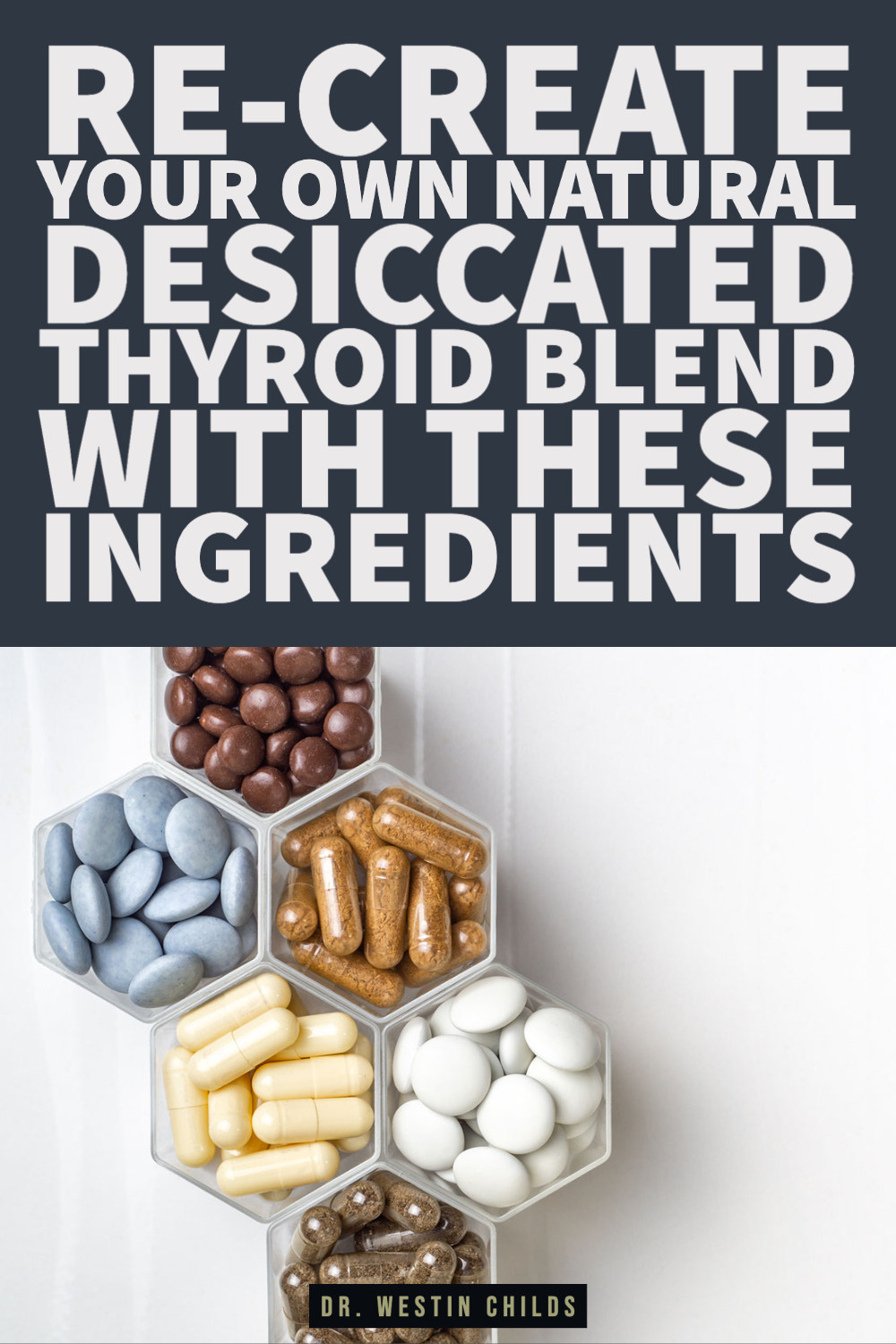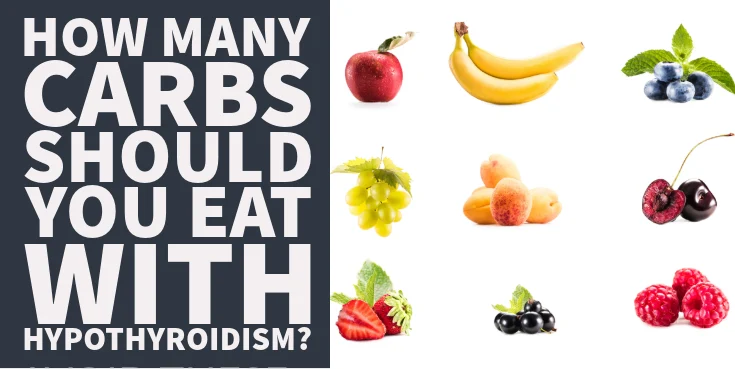There were a ton of thyroid patients that were hit in the proverbial face when Nature-throid and WP Thyroid were taken off the market.
These thyroid medications went from being some of the most sought-after thyroid medications to being completely unavailable in a very short period of time.
Not only did this cause a lot of concern among thyroid patients, but a lot of trust was lost in the entire thyroid pharmaceutical system.
I’m not here to talk about the why, because I don’t think we completely understand what’s going on behind the scenes, but it’s strange that some versions of Natural Desiccated Thyroid continue to exist while others do not.
It’s also strange that we’ve had relatively few updates regarding WP Thyroid and Nature-throid over the last few years.

But let’s put this all aside for a minute and talk about the consequences which are really what I want to focus on here.
More important than the unavailability of these medications is the impact that their absence has on the thyroid community.
Yes, there are still some options available but if you’ve been a thyroid patient for any length of time then you know firsthand that small changes in a thyroid formula can have a serious impact on how well that medication is tolerated by each individual.
In other words, even though Armour thyroid and NP thyroid are still around, they may not be ideal for thyroid patients who were previously well managed on the alternatives like WP thyroid and Nature-throid.
So where does that leave those patients? Out of luck?
I don’t think so as there are still plenty of other thyroid medications available, including some newer NDT formulations like Adthyza.
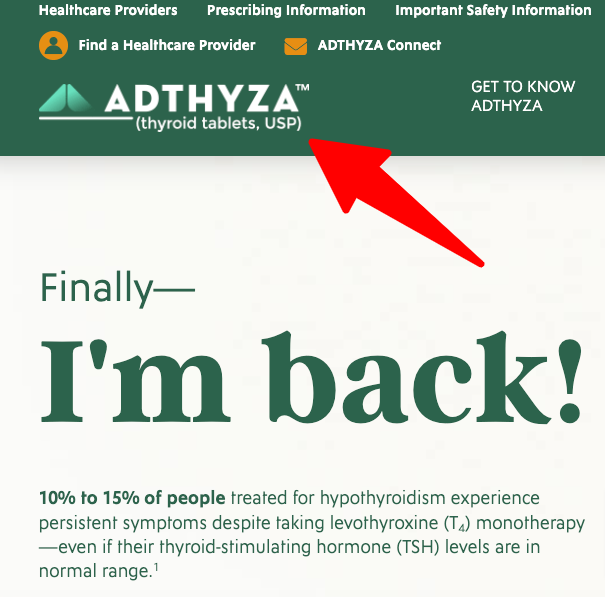
But in addition to these options, you also have the opportunity to build your own Natural Desiccated Thyroid formula with the combination of thyroid medications and thyroid support supplements and that’s exactly what I want to talk about today.
DOWNLOAD FREE RESOURCES
Foods to Avoid if you Have Thyroid Problems:
I’ve found that these 10 foods cause the most problems for thyroid patients. Learn which foods you should avoid if you have thyroid disease of any type.
The Complete List of Thyroid Lab tests:
The list includes optimal ranges, normal ranges, and the complete list of tests you need to diagnose and manage thyroid disease correctly!
What’s in NDT That Makes it So Effective?
Why would you even want to consider building your own NDT formula?
Well, there are many reasons:
- Maybe you were previously well-managed on your old version of NDT which is no longer available.
- Maybe you’ve always wanted to try NDT but your doctor has been unwilling to prescribe it to you.
- Maybe your insurance has changed and your preferred thyroid medication is no longer covered.
- Maybe you’re tired of nothing working and you just want to try something new.
- Maybe you don’t even have a reason and you are just interested in what I’m talking about!
The reason doesn’t really matter, what matters is that it’s an option and it’s worked for other thyroid patients in the past so it’s worth talking about here.
In order to build your own NDT formula, we have to spend some time talking about what makes NDT different from standard thyroid medications like levothyroxine which is what most people reading this are taking.
And there are two big differences between levothyroxine and NDT formulations (NDT formulations would include any thyroid medication that fits into this class of medications such as Armour thyroid, NP thyroid, WP thyroid, Nature-throid, etc.).
The first has to do with active ingredients and active thyroid hormones:
Levothyroxine contains only T4 thyroid hormone (1) whereas NDT contains a combination of T4, T3, and T2 thyroid hormones.
The T4 and T3 concentrations are standardized in each grain to be 38 mcg of T4 and 9 mcg of T3.
The T2 concentration is likely present but is not standardized like the T4 and T3 components.
This means you are getting some T2 with each grain of NDT but no one knows how much and that concentration likely varies considerably from lot to lot.
We do know that whatever amount of T2 is found in NDT likely does exert a positive impact on thyroid function (2) more generally and this may be part of the reason that thyroid patients prefer NDT over levothyroxine (3) and other T4-only thyroid medications.

So from the perspective of thyroid hormones, NDT wins by a landslide.
And the second has to do with the additional ingredients which are naturally found in NDT:
This includes naturally occurring proteins, pro-hormones, enzymes, and nutrients (such as iodine) that would be found in the thyroid gland of pigs.
Remember:
NDT is sourced from the thyroid gland of pigs which means when you dry up the contents of the thyroid gland and turn it into a powder, you are getting so much more than just the thyroid hormone.
You’re getting bits and pieces of thyroid hormones that are in the process of being created (4), you’re getting the enzymes and proteins that are responsible for creating thyroid hormone, and you’re getting the nutrients that are sitting there waiting to be used.
All of these ingredients do not exist in levothyroxine because it’s synthetically created to contain just T4 thyroid hormone.
These additional enzymes and proteins (and other hormones like calcitonin (5)) are thought to be at least in part why NDT is preferred over levothyroxine.
So if you are going to re-create your own NDT formula, we need to take the differences into account.
With this in mind, here’s how to do it:
Building Your Own NDT-Esque Formula
I’m going to assume that those reading this blog post are probably starting with a levothyroxine thyroid medication base.
This assumption is important because we are going to work with that medication and add various ingredients and compounds on top of it to try and build out our own NDT formula.
I think it’s safe to make this assumption because the majority of thyroid patients (about 90%+ or more) take T4-only thyroid medications like levothyroxine or Synthroid.
But even if you weren’t using those medications, you can still add the ingredients that I’m about to discuss on top of whatever thyroid medication you are taking.
They can even be added on top of NDT because, let’s face it, even though NDT is a good medication, it’s still not perfect, at least not for everyone.
So from a general standpoint, understanding these ingredients will still be helpful regardless of your situation.
Step #1. Add a Thyroid Glandular Supplement.
Your first step is to add a supplement to your regimen that contains thyroid glandulars.
Thyroid glandulars contain dried-up thyroid gland tissue from cows which allows you to obtain the enzymes, proteins, and pro-hormones that would be included in NDT.
There are a couple of differences between thyroid glandulars and NDT that you should be aware of:
- Thyroid glandulars do not contain active T4 and T3 thyroid hormones – because T4 and T3 thyroid hormones are considered prescription medications, these ingredients are processed out of over-the-counter thyroid glandular supplements. This is good because you don’t want to take a non-standardized amount of thyroid hormone but also bad because it means you’ll need to get your T4 and T3 thyroid hormones from some other source (more on that below).
- Thyroid glandulars do not contain T2 thyroid hormone – You should be aware that thyroid glandulars typically do not contain T2 thyroid hormone either. Again, this isn’t a problem but it does mean you’ll need to get your T2 from another source (more on that below).
- Thyroid glandulars are typically sourced from cows (not pigs) – You should be aware that thyroid glandular supplements are typically from a bovine (cow) source compared to the porcine (pig) source of NDT. This isn’t an issue unless you have an allergy to cows or are trying to avoid it for some other reason.
- Thyroid glandulars can contain additional glandular components such as pituitary gland, thymus, spleen, and adrenal gland – Depending on the supplement you use, it may contain additional glandulars which can provide support to your adrenal glands or your immune system. This is a welcome addition as many thyroid patients tend to also have immune and adrenal problems in addition to their thyroid problems.
Adding a thyroid glandular supplement is important because there is really no other way to get these ingredients.
If you are looking for a glandular recommendation, check out this option which includes thyroid glandulars, adrenal glandulars, and more.
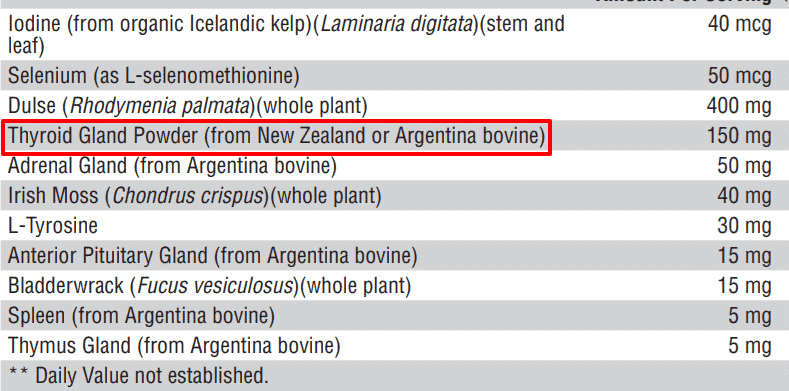
Step #2. Add a T2 Supplement.
The next thing you’ll want to do is add T2 thyroid hormone on top of your levothyroxine.
Because T2 is found in small amounts in NDT, this is not something you’ll want to forget.
T2 doesn’t get the same credit as T4 and T3 but it’s still a powerful thyroid hormone.
T2 has been shown to have a potent effect on metabolism (6) that is equal or greater to that of T3, an effect on cholesterol metabolism (7), an effect on adipose tissue (8), and an effect on cellular ATP production.
There’s no question that T2 is contributing to the overall power of NDT.
As I mentioned before, the only problem with the T2 component in NDT is that no one knows how much is actually in there.
The assumption is made that it likely is simply because some T2 would exist in the thyroid gland of pigs, but no one knows how much.
Regardless, it’s still very important to account for this T2 component if you are trying to make your own NDT.
Fortunately, T2 is the only thyroid hormone that is available over the counter which means it’s something that you can add to your levothyroxine right away.
The best form of T2 to use is 3,5 diiodo-l-thyronine which you can get in a supplement like this.
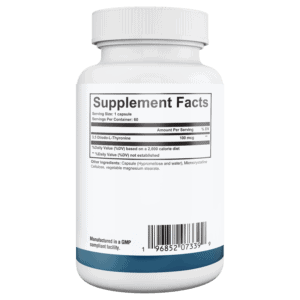
In terms of dosing, my recommendation is to start with 100 mcg per day.
This dosing puts you well below any dosing that would cause problems or symptoms which means it will support thyroid function without causing problems.
This type of dosing will also not impact your thyroid lab test results.
In some sense, using a T2 supplement is preferred over getting your T2 from NDT because it allows you to know exactly how much T2 you are taking and how you respond to that.
Because T2 dosing likely varies from lot to lot, it would be hard to know exactly how much T2 was in your last prescription of NDT and how that was impacting how you were feeling.
Step #3. Add T3 Thyroid Hormone.
Your final step is to add some T3 thyroid hormone to your levothyroxine.
As I mentioned above, NDT contains 9 mcg of T3 for every 38 mcg of T4.
This gives NDT a ratio of T4:T3 of about 23% T3 and 76% T4.
You can then use this ratio to determine how much T3 you should add to your levothyroxine dose to get a dose that is roughly equivalent to the T3 found in NDT.
If you were using 100mcg of levothyroxine, for instance, then you’d want to get around 20mcg of T3.
Don’t worry too much about getting the ratio or percentages just right as it’s more important to just add some T3 to your regimen to fill the gap.

Out of everything we’ve discussed so far, T3 will be the hardest thing to get because it is gated behind a prescription from your doctor.
Even though that’s the case, I would still encourage you to try and get the T3 if possible.
T3 is a very powerful thyroid hormone and is lacking from T4-only thyroid medications like levothyroxine and Synthroid.
Simply adding T3 to your existing thyroid hormone regimen will be a great addition, even if you are only able to add 5-10mcg.
(Optional) Step #4. Add an Iodine Supplement.
I’m including this one here as an optional ingredient because if you are making your own NDT then you can choose to add extra iodine as needed based on how much you consume from your diet and from other supplements.
But you should be aware that NDT does contain raw iodine as well as iodine from the thyroid hormones found in the medication.
Each grain of NDT contains roughly 130 mcg of iodine.
If you were previously using 2 grains of NDT like WP Thyroid (a fairly standard dose) then you would have been getting around 260 mcg of iodine each day from your medication alone.
If you then switched to levothyroxine you would then need to make up for that iodine deficit.
As a general guideline, safe and effective daily dosing of iodine for thyroid patients is usually around 300 mcg each day (9).
You can adjust how much you supplement with iodine (or if you want to) based on how much you are getting from food sources and from your supplements.
My recommendation is to err on the side of less iodine rather than more.
The higher the dose the more likely you are to run into trouble with iodine but it isn’t until you consistently hit doses of 1 milligram (1,000 mcg) or more per day that you reach this thresh hold.
Conclusion
By adding an extra 2-3 supplements and 1 additional prescription medication to your levothyroxine you can create a powerful thyroid hormone combination that allows you to re-create many of the benefits and ingredients found in NDT.
In my opinion, using all of these individual pieces together will likely provide you with even more benefits than just using NDT because you can more finely tune individual doses and more easily figure out what is helping you the most.
As mentioned, these ingredients can safely be added to any thyroid medication but I started with a levothyroxine base since that is the most common.
But you can still safely add thyroid glandulars, T2, more T3, and even iodine on top of something like Armour Thyroid or NP thyroid as well.
Now I want to hear from you:
Were you impacted by the recall of NDT formulations like WP Thyroid and Nature-throid?
Are you having trouble managing your thyroid symptoms with your current thyroid medication?
Did you know that there were ways to recreate the ingredients found in NDT with a combination of supplements and medications?
Are you planning on giving any of these recommendations a try?
Leave your questions or comments below!
Scientific References
#1. accessdata.fda.gov/drugsatfda_docs/label/2017/021342s023lbl.pdf
#2. ncbi.nlm.nih.gov/pmc/articles/PMC6068267/
#3. pubmed.ncbi.nlm.nih.gov/23539727/
#4. ncbi.nlm.nih.gov/books/NBK537039/
#5. ncbi.nlm.nih.gov/pmc/articles/PMC4370311/
#6. pubmed.ncbi.nlm.nih.gov/8708544/
#7. ncbi.nlm.nih.gov/pmc/articles/PMC5112267/
#8. pubmed.ncbi.nlm.nih.gov/16014396/
#9. ods.od.nih.gov/factsheets/Iodine-HealthProfessional/
